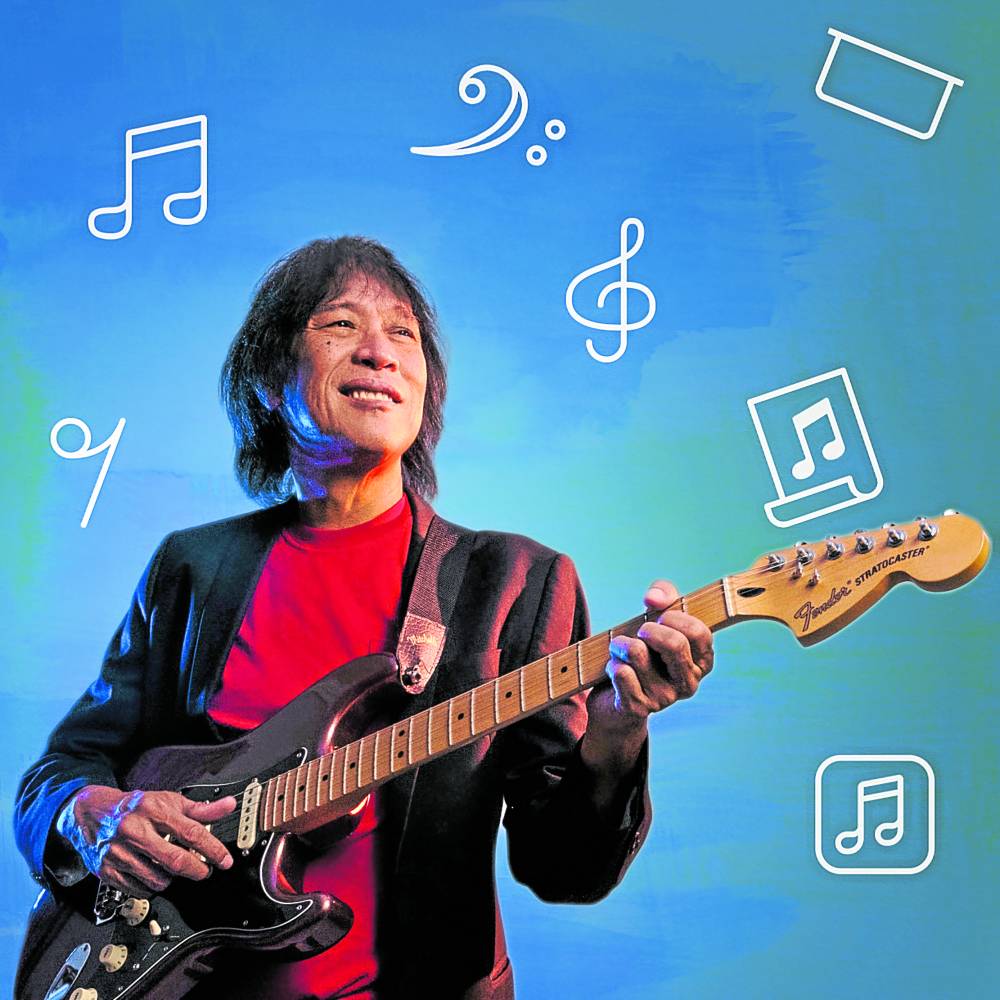While growing up with an esteemed musician for a parent comes with pressure, New York-based instrumentalist Eric Celerio is grateful, he said, because it was what ultimately inspired him to hone his craft and make the most out of his talent.
His late father, National Artist for Music and Literature Levi Celerio, “set a high standard.” “There was pressure but I also saw an advantage,” he said at a recent press conference for his new album, “Celerio by Celerio.”
Eric, a professional guitarist, pianist and songwriter added: “Had my parents been mediocre, perhaps I would have already felt content even if I weren’t good. But you couldn’t fool them—they really listened … I had to stand on my own, too.”
It’s said that what children see, children do. And getting a glimpse of his father’s work ethic early on ingrained in him the value of discipline. “He would start his practice routines at 5 a.m. So, I started practicing at 5 a.m., too,” Eric recalled. “My discipline and my artistic side I got from him.”
Another “golden rule” Eric learned from his father is that learning is a never-ending process.
“He would tell me that, ‘You may be better than others, but there will also be others who are better than you … Learning never ends,” said Eric, who grew up in New York, United States, and earned a degree in music from Queens College. He also won the Carnegie Recital Hall Piano Competition in the late 1970s.
Named National Artist in 1997 by the late former President Fidel Ramos, Levi was a prolific composer and lyricist credited with writing over 4,000 songs, including the classic ballad “Saan Ka Man Naroroon,” the lullaby “Sa Ugoy ng Duyan,” the folk song “Ang Pipit” and the Christmas tune “Ang Pasko Ay Sumapit.”
He’s also known for using a leaf as a musical instrument—a skill that landed him on the pages of Guinness Book of Records.
A comedian, too
But what many don’t know about his father, Eric, said is that he was quite the comedian, too. “He had a good sense of humor, on- and offstage. He had a happy life and laughed all the time. We always goofed around. Every day was filled with music,” Eric related. “He was a great man.”
“Celerio by Celerio,” Eric said, is his way of honoring his father’s legacy. Distributed by Universal Records, the 13-track album features his own take on Levi’s timeless work, like “Gaano Ko Ikaw Kamahal” and “Pagkat Mahal Kita.” Sprinkled among those are instrumentals with jazz, smooth pop and Latin influences, like “Los Amigos” and “Ragtime Etude.”
Though Levi used to advocate for respecting a piece of music’s source material, Eric believes his father would have appreciated the modern touches he incorporated into the classics.
“He was very strict … He would tell me not to veer away from how a piece is written. ‘Before you make artistic changes and play around, first you must respect the composer,’” Eric related. “But I think my father would like what I did.”
Asked what his favorite song by his father was, Eric said it’s “Kahit Konting Pagtingin.” “I only fully appreciated its meaning only recently. After experiencing being alone, I realized what the song is about: If we don’t like someone, we ignore them, no matter what they do. But if we like someone, we magnify the littlest attention they give us,” he said.
A working musician
As a working musician in New York City, Eric has played gigs in such joints and venues as the Waldorf Astoria, Pierre, Harvard Club, Ciprianni and the Central Park. He has also played musical accompaniment for the likes of Lea Salonga, Nonoy Zuñiga and other Filipino artists holding shows in the United States.
This time, he plans to do more work in the Philippines and introduce himself to the local music scene. “It will be a sacrifice, but I think it will pay off. I hope I can write or produce hits for other artists. And as an instrumentalist, I’m open to collaborating with different artists,” he said. INQ


